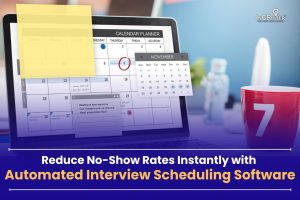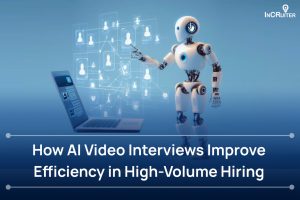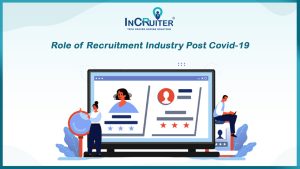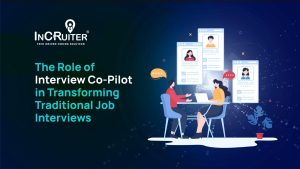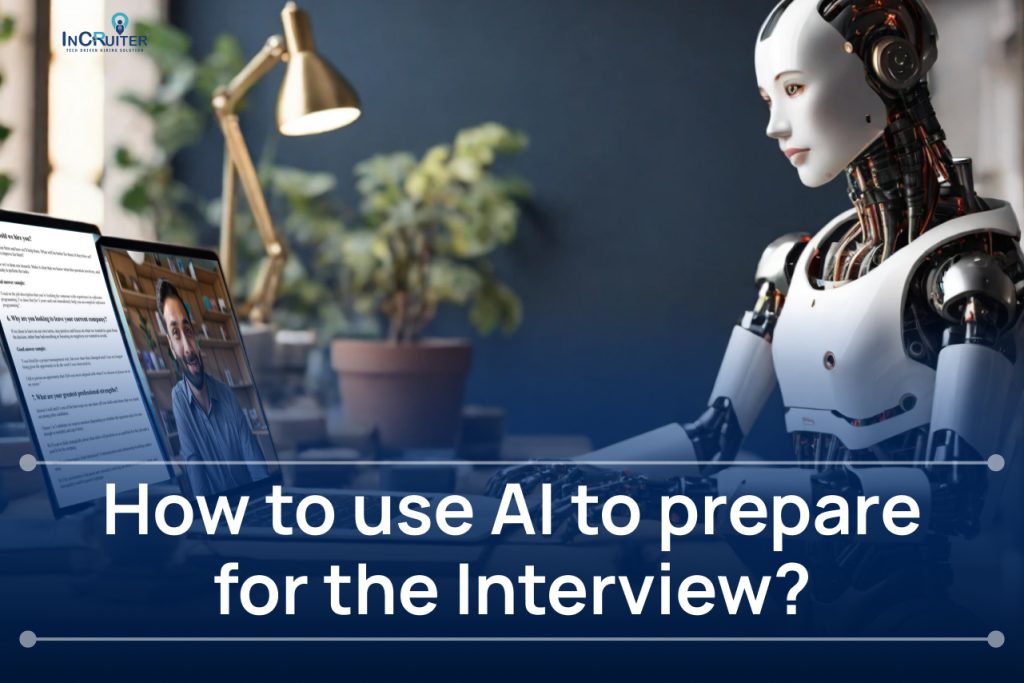
Introduction
Traditional interview preparation can be overwhelming. From digging through job descriptions, aligning skills with expectations, practicing responses, and tackling nerves, candidates have often spent countless hours to feel fully prepared. The entire process demands not only time but also effective strategy and confidence. Enter artificial intelligence (AI).
AI tools today help candidates streamline the interview process—whether it’s creating an ATS-friendly resume, practicing realistic interview scenarios, or providing feedback on non-verbal cues. These AI solutions offer a personalized, efficient, and adaptive way to prepare for interviews, catering to the unique challenges of modern job seekers.
The Role of AI in Interview Preparation
The job market today feels like a never-ending race, doesn’t it? With so many candidates vying for the same opportunities, you want to stand out—and AI is here to help make that happen. Imagine stepping into an interview room armed with a tailored game plan: AI tools can make that a reality. From personalized interview questions to real-time feedback, these platforms are like your own secret weapon for boosting your skills.
Even the Deloitte 2024 survey showed that around 26% of Gen Z job seekers are already tapping into AI for interview prep. And why not? These tools are only getting better. They adapt based on your role, industry, or even experience level. Whether you’re fresh out of college or a seasoned pro, AI can keep your preparation sharp and up to date with industry trends. So, when you walk into that interview, you’re not just prepared—you’re confident, informed, and ready to make an impression.
Leveraging AI at Every Stage to Secure Your Ideal Job
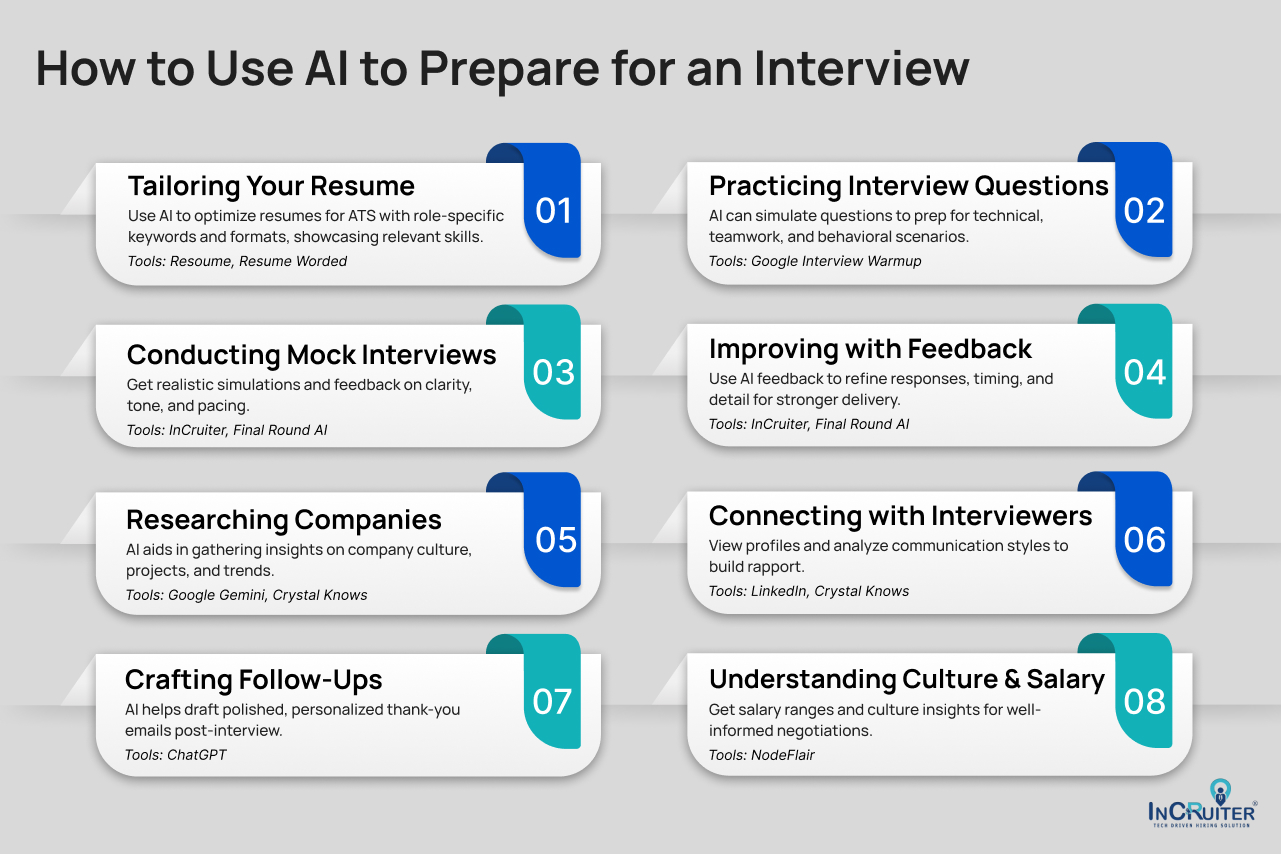
Creating a Tailored Resume
Creating a resume that matches the job you’re after can truly make you stand out to a hiring manager. Today, with AI-driven resume builders, putting together an effective resume has become a lot simpler. These tools help fine-tune your resume so it easily moves through Applicant Tracking Systems (ATS), which many companies use to screen applications.
By adding the right keywords and showcasing relevant skills, AI tools give your resume an extra edge. They arrange your details in a way that not only passes the ATS but also draws attention from recruiters. This boosts your chances of clearing the initial screening, bringing you a step closer to that interview invitation.
Here’s how a few AI tools can help your resume make a mark:
Resoume

Resoume is designed to create ATS-friendly resumes, and templates are written to specifically focus on each different field. It gives precise feedback in terms of keywords, formatting, and general layout, making sure that your resume fits exactly what recruiters are looking for in a candidate. That increases the possibility of moving forward in the selection process because the resume strongly lines up with the requirements of the job.
Resume Worded

Resume Worded uses AI to examine every part of your resume, offering helpful suggestions on wording, skills, and format. Its feedback helps fine-tune the language and highlights important keywords, making sure your resume checks the ATS boxes and presents well to recruiters.
Also read: What is an Applicant Tracking System? Everything you need to know
Practicing Core Interview Questions
Preparing for interviews can feel more approachable with tools that offer focused practice on the questions that matter most. These resources allow candidates to go beyond generic answers, honing in on what the job actually requires, from technical skills to problem-solving approaches.
In Google’s Interview Warmup, candidates start by selecting their industry and role, then set a difficulty level—basic, intermediate, or advanced. Each response is transcribed, letting candidates review and fine-tune their answers for clarity.
With ChatGPT, users can create customized practice sessions by feeding in specific job descriptions. This generates relevant questions, helping candidates shape responses for both technical skills and teamwork scenarios.
Claude offers a diverse question bank across industries with adjustable complexity, making it easier to practice responses and polish them. These tools help candidates approach interviews with tailored, confident answers.
Conducting Mock Interviews
Mock interviews give candidates a realistic setting to practice their responses, mirroring the actual interview experience. This process not only helps ease nerves but also boosts self-assurance by building familiarity with common questions and formats. When candidates use AI-driven tools for mock interviews, they benefit from precise, constructive feedback that pinpoints areas like response clarity, pacing, and even body language in video interviews. These insights help candidates polish their approach, making sure their communication style aligns well with the demands of high-stakes interviews.
These tools take the guesswork out of preparation, helping candidates practice with clarity and purpose.
InCruiter AI Mock Interview

InCruiter AI Mock Interviews provide candidates with a real-time, immersive interview practice experience. Backed by expert knowledge and industry insights, this tool goes beyond generic feedback by analyzing responses and offering clear guidance on improvement areas. It evaluates each answer against key benchmarks, allowing candidates to practice meaningfully and adjust based on focused recommendations.
Final Round AI

Final Round AI is specifically designed for virtual interview prep, aiming to enhance candidates’ delivery and communication for remote settings. This platform breaks down aspects like tone, speed, and overall presentation, providing valuable insights into how candidates come across on screen. It’s a practical resource for remote interview preparation, enabling candidates to approach virtual interviews with ease and confidence in their presentation.
Building on Feedback for Better Interviews
Getting feedback is key to improving interview performance, helping you keep responses clear, organized, and on point. AI interview tools now provide focused tips, like adjusting response timing or addressing questions concisely. To make the best use of these tips, practice your answers until they sound natural, making sure each idea flows smoothly.
Recording your responses can also reveal areas to improve in tone, structure, or even non-verbal cues like posture and eye contact. Regularly reviewing and fine-tuning these details means you’ll enter interviews prepared and confident. With each adjustment, you’ll not only sharpen your answers but also polish your delivery—helping you stand out as a well-prepared, capable candidate.
Researching Companies and Industries
Preparing for an interview? Start by digging into the company’s website—especially the “About” page. This section often holds valuable info on what the company values, how they approach their work, and any recent accomplishments they’re proud of. Social media is another goldmine; it reveals not only their latest updates but also hints at the vibe and energy they bring.
For a deeper dive, try tools like Google Gemini or Perplexity AI. These tools gather insights on industry trends, the company’s recent projects, and what truly drives them. Just typing something like “What projects and values shape [Company Name]?” can uncover details that might not be obvious at first glance.
Armed with this knowledge, you can adjust your answers to show you’re genuinely interested and in sync with what they care about—demonstrating both curiosity and a solid understanding of the field.
Also read: How Mock Interview Online Can Help You Ace Your Next Job Interview
Research Your Interviewer’s Background
Getting to know a bit about your interviewer before the big day can truly set you apart. It’s not about memorizing details but rather gaining a genuine sense of who they are. By looking into their professional journey, you’ll uncover their skills, achievements, and interests, which can help make the conversation feel more comfortable and connected.
Tools that show their career background, like professional profiles, are helpful for this, allowing you to understand what matters to them. Reading their posts, articles, or any endorsements they’ve received gives you a glimpse of the topics they care about most. This background knowledge will not only give you greater self-confidence, but it will also allow you the opportunity to craft specific, thoughtful questions.
Connecting with an interviewer on a professional level can be intimidating, but small efforts, like knowing something about their background, can go a long way in building rapport.

This platform is a perfect starting point. Take a few minutes to explore your interviewer’s profile, looking at their career journey, shared posts, or professional highlights. This simple step can reveal what they’re passionate about, helping you find shared interests or topics to discuss that might make your interview more memorable.
Crystal Knows

Crystal Knows gives candidates a unique advantage by uncovering personality insights about interviewers and hiring managers. Using AI to analyze communication styles, it helps candidates adjust their approach to better align with the interviewer’s preferences. By tailoring responses to match the interviewer’s style, candidates show flexibility and a proactive attitude. This personalized preparation not only enhances connection but also underscores a candidate’s adaptability and readiness for the role.
Also read: Dos and Don’ts in Interviews: A Comprehensive Guide
Crafting Follow-Up Communications
Actually, sending a follow-up email shows appreciation to the interviewer for the time they gave and reassuring him of your passion for the specific position being offered. This is the last opportunity to create a good impression once more time on the minds of the hiring team as to why you are very suitable.
These emails can also highlight any key details from the interview, acting as a subtle reminder of your qualifications. A well-timed follow-up also demonstrates polished communication and a sharp eye for detail, both of which are prized in nearly every role.
AI tools like ChatGPT & Claude can be particularly helpful in composing these messages, adding a level of customization and professionalism that can set you apart.
Researching Company Culture and Compensation
Understanding a company’s culture and salary expectations can shape how you approach an interview, and with tools like Glassdoor, AmbitionBox, and NodeFlair, candidates can now access rich insights into a company’s values, work environment, and team dynamics.
Glassdoor
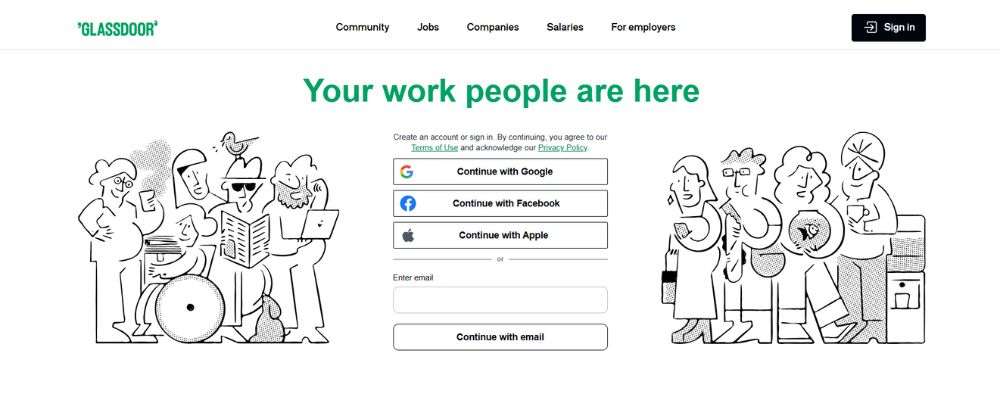
It offers a vast collection of employee reviews, allowing you to glimpse daily operations, leadership styles, and overall satisfaction levels within a company. This tool also includes salary estimates for various roles, along with benefits details, helping you understand what to expect in terms of compensation.
AmbitionBox

It is widely used in India and other regions, enhances this understanding by adding interview experience insights, revealing what candidates can anticipate in the recruitment process. It also provides salary ranges based on factors like experience, location, and industry, preparing you to approach compensation discussions with a clear sense of market expectations.
NodeFlair

This focuses primarily on tech roles, delivering salary data specific to fields like software development and data science. Its salary estimates are tailored to roles and experience levels, and it shares employee reviews that shed light on whether a particular company aligns with a candidate’s professional values and aspirations,
Also read: Organizational Culture: Definition, Importance, and Types
Conclusion
AI is revolutionizing interview preparation, offering tools that improve every aspect, from resume optimization to company research. The integration of AI tools into daily practice lets people enjoy the benefits of becoming more efficient, having customization with support, and knowing data-driven insights. The flexibility of these AI tools allows candidates to tailor their preparation and be then set in a prepared state to create a memorable impression.
With InCruiter AI mock interview on your side, you’re equipped to approach every interview with clarity, confidence, and a personalized edge, setting the stage for career success.
Ready to Transform Your Hiring Process?
Discover how our AI-powered interview platform can streamline your recruitment and find the best candidates faster.


